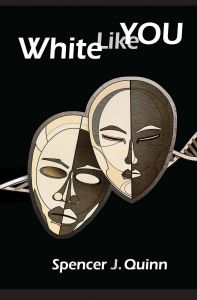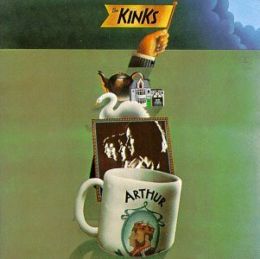The Kinks’ Arthur (Or the Decline and Fall of the British Empire)
I knew an older British lady many years ago with whom I got along rather well. We bonded over our shared conservativism as well as our similar takes on various cultural touchstones in the English-speaking world. On one topic, however, we seemed to differ more than she let on. I shared with her my naïve opinion that Winston Churchill should be considered the man of the twentieth century. This disconcerted her, and while she didn’t go so far as to disagree, she seemed to harbor unkind thoughts about Britain’s most famous statesman. I couldn’t understand why. She was a Tory. She liked Margaret Thatcher and disliked Tony Blair. She was also reasonably red-pilled on demographics, Islam, and immigration. So why the low opinion of Churchill?
It is in this moment of British unpleasantness, which to the outsider appears — or should appear — pleasant where we find the chief appeal of Arthur, the great 1969 album by the Kinks. And it goes deep. The record’s complete title is Arthur (Or the Decline and Fall of the British Empire — and yes, it is worthy of such a grand, Spenglerian title.
Keep in mind that Arthur was originally conceived as the soundtrack for a musical teleplay which ultimately never got produced. Thus, it can be loosely viewed as accompanying a story about an ordinary man born in an empire that is still basking in the glory of its eponymous monarch and coming to an end sometime after the Second World War, perhaps in the 1950s. From a lyrical standpoint, songwriter and lead singer Ray Davies uses irony like a rapier in nearly every song to slice apart the unthinking optimism, soulless materialism, and self-effacing conformity of mid-twentieth century England. And in the few instances when Davies plays it straight, either the tragedy is unbearable or the insight cutting. In nearly all cases, however, appearances conflict with reality — sometimes directly, sometimes obliquely; sometimes with humor, sometimes not. Sometimes, as in the brilliant “Mr. Churchill Says,” the irony isn’t even in the text, but in the performance. Some of the deftest songwriting in the rock canon appears in the Kinks’ Arthur.
The album opens with “Victoria,” an upbeat pop number which at first blush seems to glorify British imperialism along with Queen Victoria herself. A closer look, however, does not exactly reveal the opposite. Victoria looms large and benevolent, but only to the extent that we brush aside the price in British lives the Empire had to pay to maintain itself. Interestingly, Davies focuses not on the impact the Empire had on its colonies, but instead on its own people. In an era when many pop stars were agonizing over colonialism and the Vietnam War, and when many young whites were beginning to identify less with their own race and more with non-whites, Davies certainly bucked the trend with “Victoria.” The song poses questions to authority, but not in the more shortsighted manner of the Who’s “My Generation” or the Beatles’ “Revolution #9.” In “Victoria,” Ray Davies reveals a scope much broader than current events of the 1960s. The irony may be subtle, but it cuts deep:
I was born, lucky me
In a land that I love
Though I am poor, I am free
When I grow I shall fight
For this land I shall die
Let her sun never set

“Yes Sir, No Sir” satirizes the mid-century British military and the absurd extent to which it — at least in Davies’ mind — instilled discipline in its fighting men. Fortunately, the song is no lampoon. Yes, lyrics such as the following get the obvious point across:
Yes Sir, no Sir
Permission to speak, Sir
Permission to breathe, Sir
What do I say? How do I behave?
But as the song changes in key, tempo, and rhythm and accrues instrumentation, its perspective shifts to that of the officers or their paymasters. They offer chilling nihilism that underscores an intractable power relationship. Thus, even if one transcends the “yes sir, no sir” life of a soldier, all freedom is illusory. At one point Davies sings rather jauntily:
So you think that you’ve got ambition
Stop your dreaming and your idle wishin’
You’re outside and their ain’t no admission
To our play
In another, Davies asserts in a drone-like voice that “authority must be maintained.” In the song’s most unsettling moment, he adopts the callous voices of officers who announce:
Let them feel that they are important to the cause
But let them know that they are fighting for their homes
Just be sure that they’re contributing their all
Give the scum a gun and make the bugger fight
And be sure to have deserters shot on sight
If he dies we’ll send a medal to his wife (Ha ha ha)


You can buy Spencer Quinn’s novel White Like You here.
In other words, war is a racket. It’s a psyop. It’s not what our leaders say it is. But which war are they describing? It’s certainly not any war fought in the 1960s, when these songs were written. The setting seems to be much earlier. In “Drivin’,” a merry motorist heads to the countryside for a picnic to escape a world on the brink of war. “Let all the Russians and the Chinese and the Spanish do their fighting,” he tells us. Could Davies be referring to the Great Terror, the Japanese invasion of Manchuria, or the Spanish Civil War?
In “Shangri-La,” an homage to the falseness of trading one’s autonomy for material comfort, Davies reminisces about the days when lavatories were in people’s backyards. When was the last time most people in England did without indoor plumbing? The 1910s? It’s hard to say, but it is safe to conclude that our story takes place in the 1930s at the latest. Towards the end of the record we have “She Bought a Hat Like Princess Marina,” which references the actual Princess Marina, who was in her prime during the 1930s-‘50s and earned a spot on the International Best Dressed list of 1960. Anthony Eden, who was Prime Minister of England from 1955 to 1957, also gets a mention.
Removing all doubt that Arthur is set in and around the Second World War is, of course, “Mr. Churchill Says.” As with “Victoria,” this magnificent song is not what it seems. But where the irony is merely subtle in “Victoria,” (for instance, the sarcastic quip “lucky me”), it exists entirely between the lines of “Mr. Churchill Says.” On paper, the song is a rallying cry for the British people during the Second World War, the air raids in particular. Everything about it makes sense, and promotes exactly the kind of fighting spirit a nation’s elite would want during war:
Mr. Churchill says
We gotta hold up our chins
We gotta show some courage and some discipline
We gotta black up the windows and nail up the doors
And keep right on till the end of the war
But is the song really sanguine about the Second World War? The way the Kinks perform it on Arthur, it doesn’t seem so. First, we have the cynicism of the earlier tune “Yes Sir, No Sir” sticking in our heads when we get to “Mr. Churchill Says.” Could Churchill have been the one referring to his own fighting men as “scum” and “buggers?” Could Messrs. Beaverbrook, Montgomery, and Mountbatten — the other elite personages mentioned in the song — be the ones fooling the common people into thinking that the war is just? Secondly, Davies adopts an unmistakably pompous tone during the passage in which he quotes Churchill at length; for example: “Never in the field of human conflict was so much owed to so few.” It’s as if he’s mocking Churchill, and the nearly comic “oohs” from the backup vocals only strengthen that impression.
Finally, the repetitive way in which Davies delivers the song’s leitmotif (“Mr. So-and-so says . . .”) while never mentioning the speaker’s first name or title, aside from the impersonal “Mister,” implies something sinister. It’s as if Churchill and his cronies are telling the British people how to think — and the British people are content to let them — even though it’s debatable whether fighting a war against the Germans was indeed best for their nation and empire.

Of course, Ray Davies and the Kinks never go full-bore revisionist. They don’t make veiled references to Oswald Mosely or imply that the hawks at 10 Downing Street were war criminals. But in the record’s last four songs after “Mr. Churchill Says,” they evoke the poverty and bleakness of post-war England quite strikingly. The final song, the album’s title track, could be interpreted as the swansong of empire. So if the Second World War was our finest hour, as Mr. Churchill says, and if so much was owed to so few, then what did the sacrifice of this precious few get us? Before we answer, I should point out that we actually receive a horrific glimpse of such a sacrifice in the unspeakably tragic “Some Mother’s Son.” This somber song takes us through a soldier’s last moments on the battlefield, as well as the endless avenues of memory thereafter, framed and flanked by flower pots on his mother’s wall.
Are the record’s characters any better off at the end of the record than they were in the beginning? Not at all. Note the ironic understatement in the opening lines of “She Bought a Hat Like Princess Marina”:
She bought a hat like Princess Marina’s
To wear at all her social affairs
She wears it when she’s cleaning the windows
She wears it when she’s scrubbing the stairs
But you will never see her at Ascot
She can’t afford the time or the fare
But she’s bought a hat like Princess Marina’s
So she don’t care
Note also the growing rift between father and son in “Nothing to Say” as the father cannot adapt to changing times, and the son grows increasingly bitter about it:
You keep pretending that everything’s fine
So you make small talk to help pass the time
But all the words that you spit from your face
Add up to nothin’, you got nothin’ to say
“Arthur,” the record’s final song, is such an enigmatic singalong that one can listen to it over and over and never quite plumb its depths. Its theme is one of sympathetic, almost condescending, concern for Arthur, an ordinary man, presumably “Victoria”’s first-person narrator, who has suffered all the slights, betrayals, and disappointments described on the album and is now nearing the end of his life. The British Empire may have been grand and vast, but it couldn’t exist without loyal, patriotic, honorable, and pathetic men such as Arthur. The world has passed him by in the same way that it has passed the British Empire by, yet Davies muses that
Arthur, could be
That the world was wrong
Don’t ya know it? Don’t ya know it?
Arthur, could be
That you were right all along
Don’t ya know it? Don’t ya know it?
Thus, perhaps the empire was a good thing after all? Perhaps “Victoria” was not entirely ironic? Perhaps Victoria the monarch really was benevolent? And if so, then what went wrong? One can point to the all-too-human tendency to conform, to follow, and to turn one’s eyes away from what’s unpleasant. My reading of Arthur is that such weaknesses enabled predatory elites to lead the British people into folly. This is what ultimately caused the trauma of the Second World War and the eventual fall of the British Empire. I understand that this is a heck of a conclusion to draw from a pop record, but I believe it is supported by the text and the music. Indeed, a more poignant and farsighted record does not exist in the rock canon.

Musically, Arthur is as moving and dynamic as its lyrics. Unusually for a pop album, horns are everywhere, but they hardly distinguish themselves in solos as they do in later Kinks songs such as “Black Messiah” and “Come Dancing.” In Arthur, they seem to serve a narrative purpose. They provide the majestic atmosphere of “Victoria,” as if announcing a royal entrance or evoking a legendary battle. They help assert the question “What do I say?” in “Yes Sir, No Sir,” as well as contribute to the marching-band feel of the song. In “Brainwashed” they churn through the principal melody whenever Davies breaks from it and provide an extra oomph behind the other instruments to give the song an unsettling yet thematic sonic depth. They add to the surreal quality of “Australia” and to the dreamlike stasis of “Shangri-La.” They also make a hysterical appearance in “She Bought a Hat Like Princess Marina,” and are key to making that song a tragicomic masterpiece.
In keeping with its appearance-versus-reality dichotomy, many of the songs on the record share a chameleon-like quality as they constantly reinvent themselves. A single characteristic of any one song on Arthur is hard to pin down. As mentioned above, “Yes Sir, No Sir” changes its melody, key, and rhythm several times to accommodate different narrative perspectives. The hard-rocking “Brainwashed” simply stops in the middle and becomes a completely different song for nearly a minute. “Australia” starts almost like a jingle for a travel agency advert and ends with an extended psychedelic jam — admittedly a weakness in either the album or my grandiose interpretation of it. “Mr. Churchill Says” changes gears so often it was impossible for me to internalize without serious, concentrated listening over many plays. It begins gently, but soon lifts itself into oratory over cheeky harmonizing. An air raid siren then sets the tone for a creepy rock riff which underlies syncopated vocals. A jazzy guitar solo leads to the song’s conclusion in which the lyrics quoted above are furiously chanted rather than sung. It is a truly mesmerizing and protean song.
My favorite changes, however, occur in “She Bought a Hat Like Princess Marina.” The stately, harpsicord-heavy opening at first seems almost too old-fashioned to be real. But there are just enough comic hints to keep one interested, such as the affected harmonizing by the band in the second verse and a brief horn honk. After four drumbeats, the song abruptly shifts to its second movement, a raucous take on Bing Crosby’s “Brother, Can you Spare a Dime?” in which noisemakers replace the harpsichord, and the band cuts loose with a contemporary — dare I say American? — barroom rocker. Drums introduce a third movement as well, this time a recapitulation of the original theme, but carried at an absurdly fast pace. The noisemakers go into overdrive, as do the horns, to turn this sad, ironic ballad into a boisterous farce. Within this final movement, drummer Mick Avory treats us to what may be the greatest — or at least the most hilarious — drum solo of all time. But despite these stark musical changes, the lyrics maintain their pathetic character throughout. The woman who scrubs stairs in her Princess Marina hat ends up with no food in the larder, yet she still grins like a millionaire. She has her hat, so she don’t care.

In order for a piece of music to transcend its age and attain greatness, it has to possess a power, a mastery, a uniqueness, or something that not only sets it apart from other works but also appeals to what’s eternal in the human character. Despite popularity, technical artistry, and critical acclaim, only time can reveal a work’s greatness. After more than 50 years, I believe it can be said that the Kinks’ Arthur (Or the Decline and Fall of the British Empire) is one of the six or seven other pop records which will survive the current age. Within the parameters of pop music, Arthur rocks as brilliantly and as dynamically as anything in classic rock. Moreover, it evinces rare psychological insight, a broad command of history, an adroit control of irony and pathos, and a persistent sense of humor. Most importantly for today, it courageously challenges one of the most insidious taboos of the modern world: that the Second World War was a just and righteous war.
Despite what Mr. Churchill says, it wasn’t. Arthur’s life, as well as the decline and fall of the British Empire itself, tell us so.

* * *
Counter-Currents has extended special privileges to those who donate at least $10/month or $120/year.
- Donors will have immediate access to all Counter-Currents posts. Everyone else will find that one post a day, five posts a week will be behind a “paywall” and will be available to the general public after 30 days. Naturally, we do not grant permission to other websites to repost paywall content before 30 days have passed.
- Paywall member comments will appear immediately instead of waiting in a moderation queue. (People who abuse this privilege will lose it.)
- Paywall members have the option of editing their comments.
- Paywall members get an Badge badge on their comments.
- Paywall members can “like” comments.
- Paywall members can “commission” a yearly article from Counter-Currents. Just send a question that you’d like to have discussed to [email protected]. (Obviously, the topics must be suitable to Counter-Currents and its broader project, as well as the interests and expertise of our writers.)
To get full access to all content behind the paywall, please visit our redesigned Paywall page.




